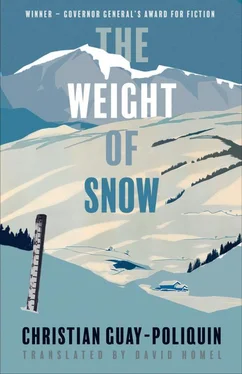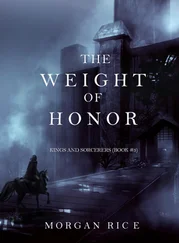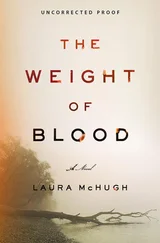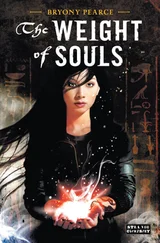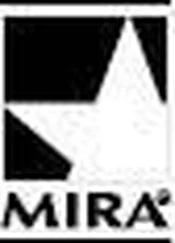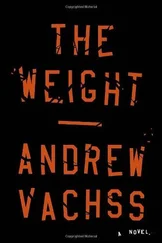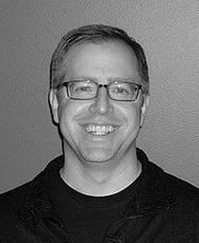During the last snowstorm, someone stole Jude’s snowmobile. At first José accused me but, you know, that made no sense. Later they realized that Jérémie had disappeared with his nine-year-old son. Everybody wanted to hunt them down, but the snow had covered their tracks long before. They tried comforting Jérémie’s wife instead, but she was inconsolable. José gave her some sleeping pills. All I hope is that Jérémie took enough gas to get somewhere. No one wants to imagine how Jude will react if he ever sets foot here again.
Matthias offers Joseph a bowl of oatmeal, which he gladly accepts.
And then, he continues, a number of people have fallen sick lately. Some got better on their own, you know, but others can’t seem to find their way back to health. Including Judith who took over schooling the children after Jean refused to do it anymore. Maria does what she can to help them, but she’s not a magician.
Joseph shovels the food into his mouth. A few oat flakes stick to his moustache.
You’re better off here, he concludes. Away from all that.
Matthias interrupts to ask him if he managed to get any milk. Joseph smiles.
Yes, I went to the stable this morning. While everyone was still in bed. The stable’s not heated, and I’m always surprised how comfortable it is in there. You know cows produce the heat they need. I could have stretched out and finished my night’s sleep. But Jonas was sleeping on the hay bales. He woke up as I was milking a cow. He was surprised to see me, but I told him to act like I wasn’t there, and he went back to sleep.
Matthias peers into the sacks of food and takes out two large containers of milk. He opens one and samples it.
It’s really fresh, he says, wiping his mouth on his sleeve. It’s perfect, thanks.
The families living in the notary’s old house made potted meat and fish pâtés, all kinds of things. I’ll bring you some. Might as well enjoy it. Even if we still have a good stock of food in the village, people are strict about rationing. Jude insists on being careful. And then there’s a rumour that the people in a village along the coast were able to hook up to a windmill. Everyone’s talking about it, everybody has an opinion. It could be true. There’s no electricity here, but on the sides of the mountains those machines are still working. Some people say they’re going to go there. On the other hand, if we believed what everyone says, the blackout would have been over a long time ago, and we should all be watching television with a cold beer and a TV dinner fresh out of the microwave.
Joseph sighs, then takes out his tobacco pouch. He rolls a cigarette, lights it, and inhales deeply. He goes on talking, but I have stopped paying attention. I follow the scrolls of smoke slowly issuing from his mouth.
You want one? he asks me.
With pleasure.
Joseph leans in my direction, surprised.
You talk now? That’s great news!
I give him a smile.
We smoke as Matthias busies himself with sorting the food.
Any news from my uncles? I ask, my head spinning from the tobacco.
I went and had a look at their place, Joseph tells me. There are no vehicles in the garage, the canoes are gone, and every room was completely emptied. Your aunts and uncles took everything with them. Food, tools, clothing. Everything useful. But I found this, he adds, pulling a folded piece of paper from the inside pocket of his coat. It’s a map of the region. It might prove useful.
I take it and thank him. I wonder if my aunts and uncles really intend to come back to the village. They might have left forever. Unless something happened to them.
Oh, I almost forgot the good news, Joseph adds. A woman gave birth in the village. Despite what some people feared, everything went normally. Maria was there. She’s no magician, you know, but sometimes she can work miracles. She helped deliver a little girl, Joëlle. The first child of the blackout. No one knows who the father is, but Jenny, the mother, is staying in the house by the sawmill, it’s big and there are a lot of people in there, so she’s well looked after.
Joseph stands and buttons his coat.
Next time I’ll get the snow off the roof, he promises. With everything that’s accumulated up there, it must be getting pretty heavy.
Yes, Matthias tells him, I was going to ask you about that.
Remind me when I come back. Right now, though, I’ve got to go back down the hill. Maria is waiting. I promised I’d take her ice-fishing and today’s the day.
Joseph waves goodbye and the door closes behind him as if slammed by a gust of wind.
Matthias finishes sorting the provisions Joseph brought. He glares at the prepared food. He mutters and grumbles that he’s the cook here, but then he stows everything away carefully just the same.
It’s true, he says after making his calculations, they’ve cut back on the rations.
He pours the milk into the kettle that we use to melt snow and places it on the stove.
It has to warm up. Warm up but not boil, he tells me as he adds rennet.
He stirs the mixture, then takes the pot off the fire.
Now we have to wait.
We play a few chess games and finish off the rest of the oatmeal. Matthias wins every one. I make fun of his skill by telling him I’m letting him beat me. He lifts his chin in my direction, squints, but says nothing.
He goes over to the stove and stirs the pot with a spoon. It smells like clotted milk. Then he pours the contents through a filter made of a metal hanger and a length of cloth. The whitish mixture begins draining slowly.
I don’t let up.
I let you win every time. And you know it.
Matthias won’t react. He allows himself the shadow of a frown, and tells me I don’t know what I’m talking about, my fever must have returned. I smile, then take out the map Joseph gave me.
I examine the gradient markers, the plateaus, the river beds. I pick out the coastal villages at the top of the map, then ours, surrounded by valleys. Further on is the lake where we fished when we were kids. The two main roads are clearly visible. The one that follows the coast, and the other that cuts through the interior. I can make out the dotted lines of the logging roads that push their way into the heart of the valleys. Here and there drawings of tall grass indicate swampy zones. All the rest is forest.
I look at the scale at the bottom.
It’s enormous.
Certain sections of a river have been identified by hand. I remember having heard those names, but I can’t tell them apart. My uncles’ hunting camp must not be far, in a river bend, in the middle of the hundred-year-old cedars. I remember it very well, but I can’t locate it on the map.
That’s it, I say to myself, putting my finger on the little “x” sketched with a lead pencil. It’s there.
When I look up, Matthias is still inspecting the contents of his operation.
The texture is just right, he says, satisfied. It’s starting to look like cheese.
In the night, I heard the little animal again. I recognized its discreet footsteps, its furtive movements, and how it was interested in the food in the cellar. It would stop to listen carefully, then probably steal back to the other side with part of our provisions. It seems to be meticulously laying up a stock of reserves for the times to come.
At first light, Matthias disassembles his production. He presses the soft white mass to extract the water, adds salt, then makes six balls as big as his fist and flattens them with great care. On the stove, in an old pot, he melts some candle-ends. He watches the wax liquefy as he removes bits of wick and blackened matches. Then he pours the hot wax over the cheeses, making sure to cover them completely.
Читать дальше
